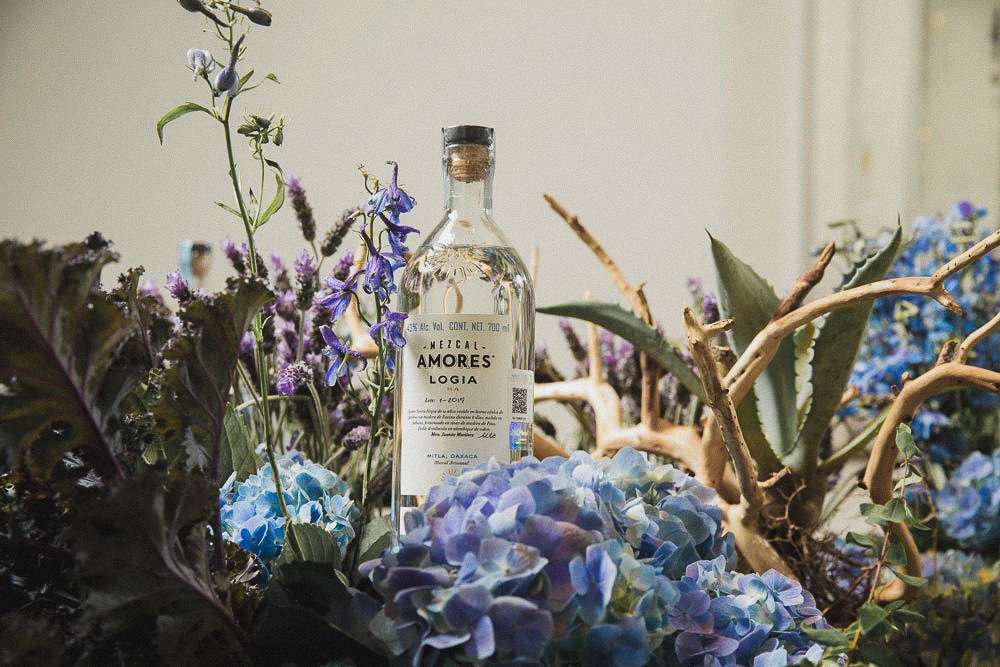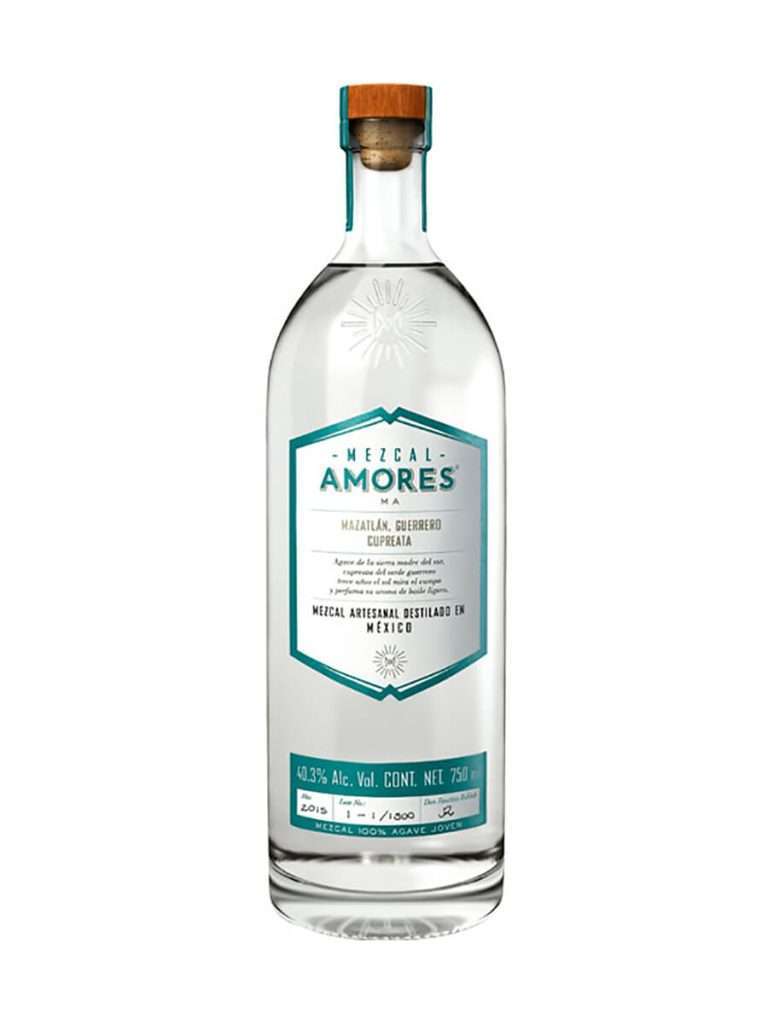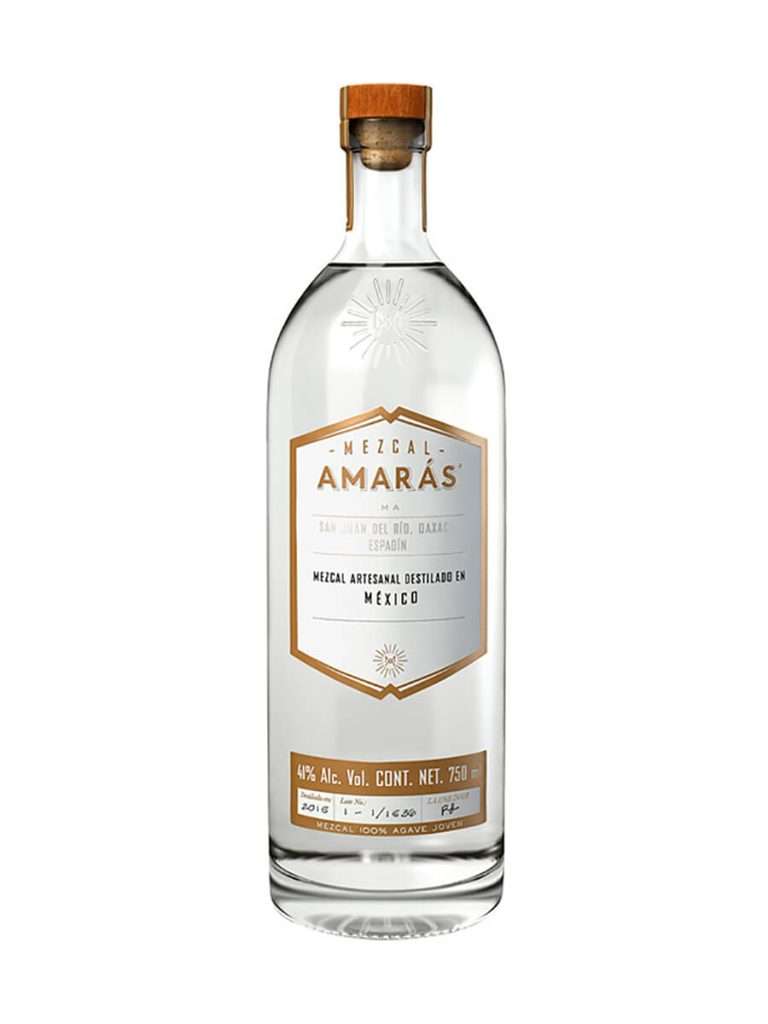For the premium mezcal brand Mezcal Amarás, sustainability is a top consideration for flavor as much as it is to ensure the planet for future generations.
Agave is a complex crop. The succulent has evolved over millions of years to survive extreme temperatures and weather changes. But for Casa Amarás, the brand behind Mezcal Amarás, that’s all made choosing the right ones for the best mezcal even more important—and challenging.
“If you don’t harvest the agave before reproduction it dies,” Luis Niño de Rivera, Co-Founder, Co-CEO, Global Brand Ambassador and Government Affairs of Mezcal Amarás tells Ethos. The brand is at the forefront of the clean spirits movement.
Agave-based spirits are becoming more and more synonymous with sustainability. Breaking Bad stars Bryan Cranston and Aaron Paul launched a sustainable, clean mezcal brand, Dos Hombres, just before the pandemic.
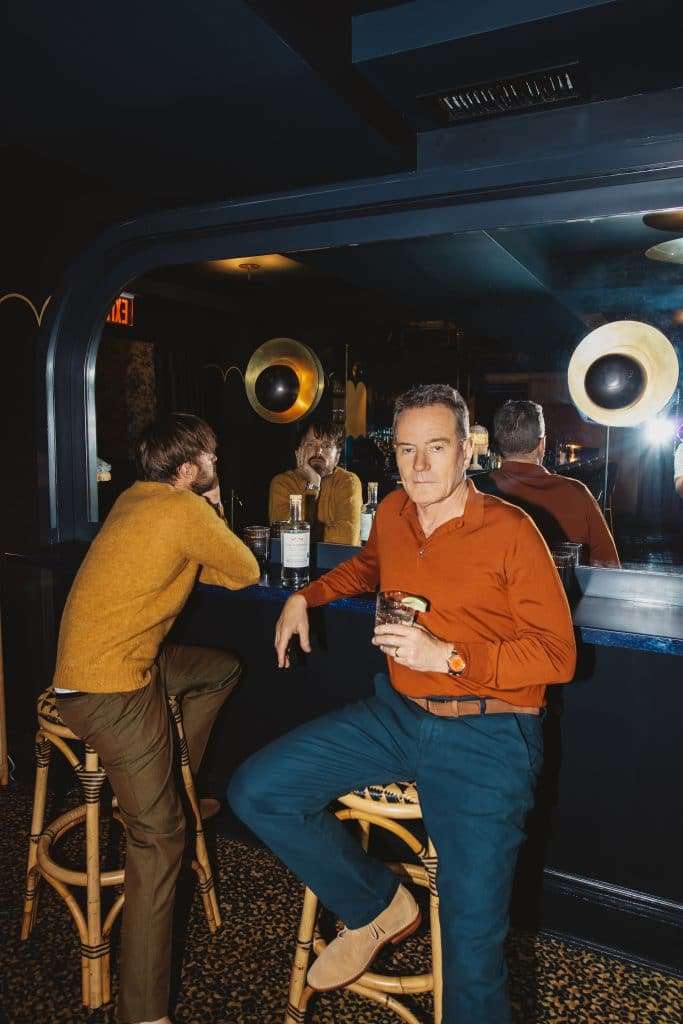
Kendall Jenner’s 818 tequila brand recently announced it was increasing its sustainability efforts. Actress Eva Longoria has launched her own line of sustainable tequila, too.
With Casa del Sol, the Mexican-American actress and entrepreneur says the goal of the brand was to deliver something that was “set apart from the rest,” she told Food & Wine last year. “From the liquid to the legacy, we took the time to develop an ultra-premium tequila focusing on authenticity and a distinct flavor profile.”
The lesser-known agave spirit bacanora is also built on sustainability. The drink native to Sonora (tequila hails from Jalisco, and mezcal from Oaxaca) was mired in a longstanding ban that traces back to the region’s prohibition era of the early 20th century. But as the bacanora industry poises itself toward a market share like its better-known cousins, it’s also doing it the sustainable way, with ethical harvesting, re-planting, minimalist production, and working to help less sustainable industries, such as the region’s cattle ranching, transition into spirits production.
Mezcal Amarás
To understand why Mezcal Amarás is built on a sustainability ethos (and why the spirits industry at large is shifting toward sustainable harvesting and production) is to understand the sacredness of the agave plant, which makes better mezcal (and tequila) the more traditionally it’s produced. That means better soil and growing conditions, but also “patience, vigilance and hard work,” says Niño de Rivera.
“More sustainable and traditional methods of production and harvesting yield mezcal with superior aromas, flavors and, personality, he says.
The company was founded by a group of entrepreneurs and “visionaries” who wanted to showcase the magic of the agave.
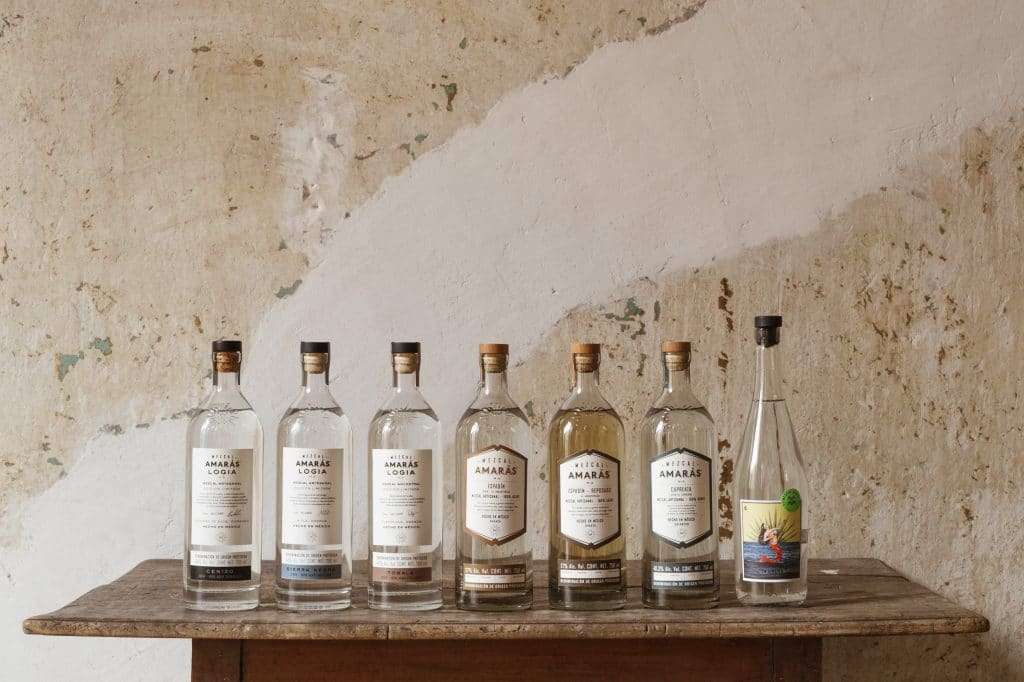
“Distilled for centuries from Mexico’s sacred agave plant, [we] felt this venerable spirit had not received the honor it deserved,” says Niño de Rivera. This realization led the founders “to develop a holistic model aimed at preserving the land, the agave, and the mezcal producing communities—with love.”
Mezcal is as much science as it is that love, though.
Mezcal Amarás plants 24 types of agave in total. “Each one has a different level of sugar, size, and life span, (6 to 35 years depending on the species),” says Niño de Rivera.
According to the brand, it’s planted more than 150,000 agave seeds including Espadín, Tobalá, Sierra Negra, Mexicano, and Jabalí varieties. On average, Casa Amarás says it plants seven agaves for every single one harvested.
“To grow agave sustainably we use organic products to maintain healthy and strong plants, painstakingly determine the right regions and altitudes for each type of agave, the right time of the year for harvesting, and work with the local communities to ensure a long-lasting relationship with the landowners.”
This relationship building is a fundamental ethos for the brand. “When we started the brand the price of agave was $0.3 centavos (Mexican peso) per kg. Farmers were losing money at that price,” says Niño de Rivera. “Today the price per kg is at $11 to $13 Mexican pesos. Only by setting the future prices can we ensure minimum gains for all parties involved,” he says.
Paying a more equitable price for the agave means Mezcal Amarás has more support in its conservation efforts. Farmers paid better are more incentivized to protect land and promote biodiversity, which plays a part in a healthy ecosystem where the agave thrives.
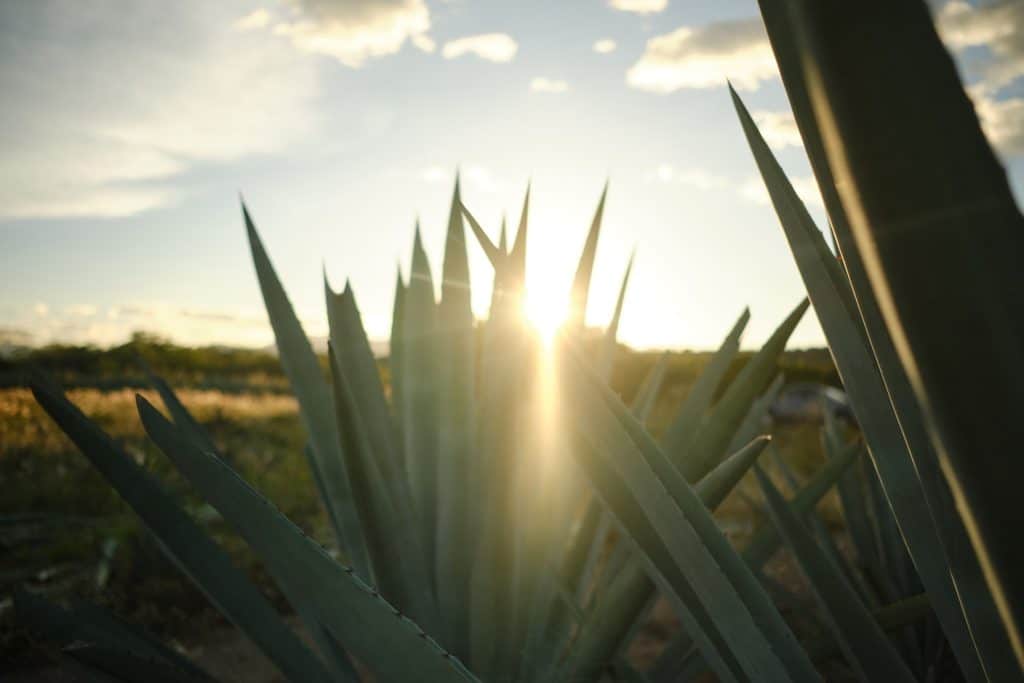
The company says that behind every bottle, there is a “Maestro Mezcalero”—someone with the empirical knowledge that “transcends generations”. At present, it works with more than 18 of these specialists. This, the company says imparts ancestral methods and rituals that create the best products. “Their dedication and devotion come from the love they have for their community and heritage, paving the way for the next generation of artisans,” reads the Casa Amarás website.
This relationship with the Mezcaleros is aimed at empowering the process; Casa Amarás says it doesn’t interfere with their processes, production time, or volume capacity.
“We buy from them only what they are willing to sell, reserving agave or mezcal for local sales.”
Conservation efforts
“Our first priority is to prevent deforestation by planting and maintaining the right amount of agave plants per hectare,” says Niño de Rivera. The brand does this through carefully selecting the best regions for each agave species and planting according to projections well into the future, at least 7 years out,” Niño de Rivera says.
The brand offers other incentives too.
“If producers want to increase their production by buying more fermentation vats, still pots, or acquiring more agave, we can loan them the capital required and they can repay with mezcal on a monthly basis with no interest,” Niño de Rivera says. “For example, we loaned the capital required to 4 producers in San Juan del Rio to build a new Palenque on top of the hill to produce up to 1,100 liters more mezcal per month than their previous facility. The facility is already paid and 100% theirs,” he says.
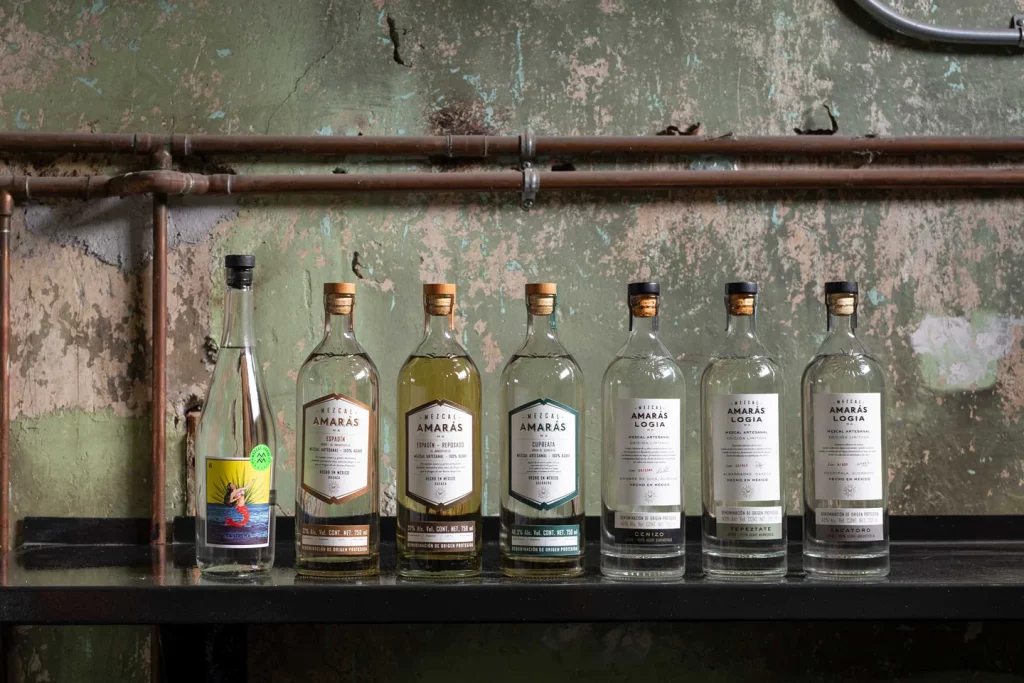
All of this helps the brand in its goal of being more than just a company—it’s to be a philosophy, too: to believe in a better world, says Niño de Rivera.
“We put this philosophy into practice by developing the holistic production cycle we call “From Seed to Sip” – in which up to 20% of the net sale of each bottle is allocated to developing internal initiatives promoting social and environmental responsibility.”
It’s not just growing sustainably that the brand sees as critical to preserving the sacredness of the culture. Mezcal Amarás is the world’s first carbon neutral mezcal company; it purchases bonds that fund sustainable energy companies.
Logia
Mezcal Amarás’ latest offering is the Logia line—a new premium range Niño de Rivera says features the brand’s most select agave. “Logia—λόγια in Greek—is an ancient term used to describe the divine origin of holy scriptures,” he says. “Today, it is a word that we associate with things unobtainable, selective, and rare. What better term than Logia best defines our most select agaves?”
Niño de Rivera calls the Logia range a “mystical and enigmatic brand.” He says it pays tribute to “each solar cycle in the form of small and unique batches of artisanal and ancestral mezcal.”
This, he says, embraces the knowledge of centuries of mezcal heritage and tradition. “These collectible editions herald the importance of the agave as a sacred plant, one that has been specially chosen, and that represents balance with nature and the intricacy of evolution.”

